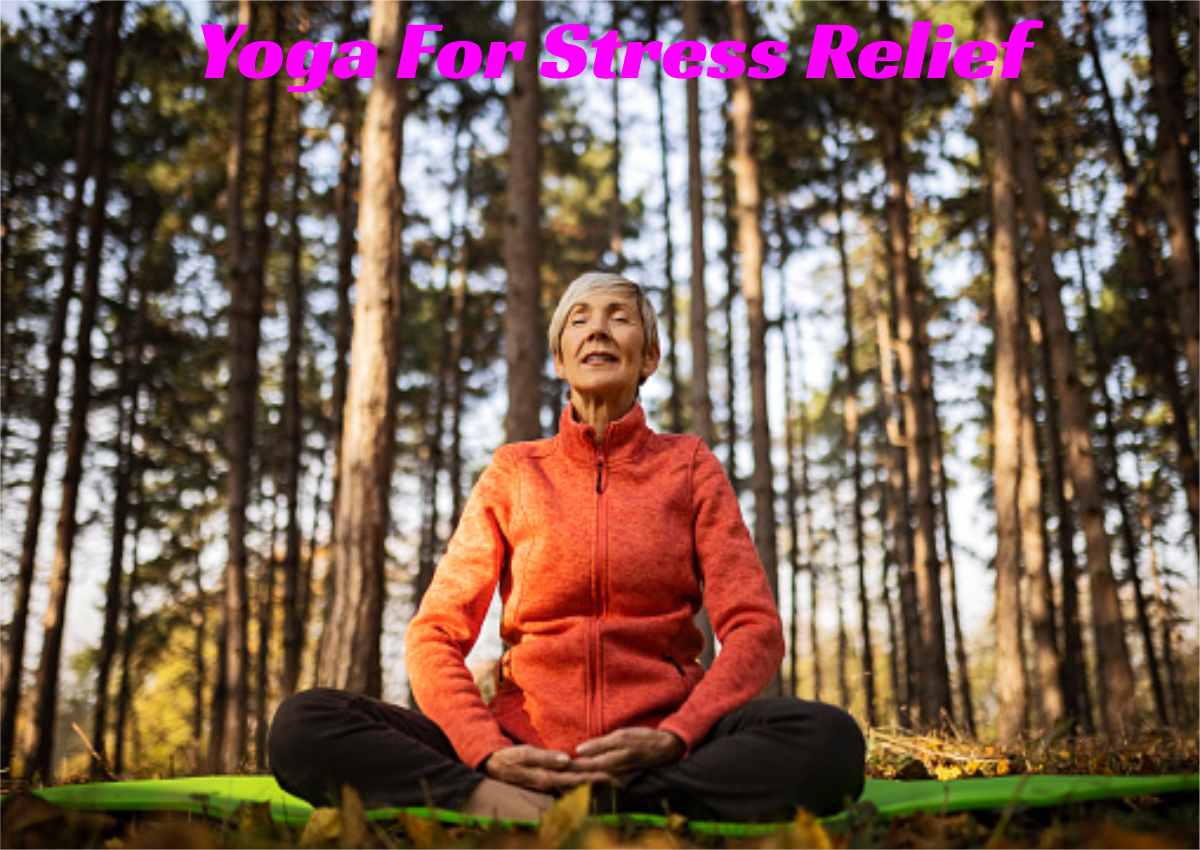Table of Contents
Top 5 Yoga Poses For Stress Relief
Yoga For Stress Relief: Yoga is a potent cure for stress. Here are the best yoga poses for stress intervals. Try them now and discover some much-needed relaxation. For most of us, life can remain demanding. At one time, many of us will feel overwhelmed if it is too much and our aptitude to handle it. This feeling of being overcome, known as stress, can have severe repercussions and significantly affect our health if it is lengthy.
What is Stress?
Stress can remain defined as the degree to which you feel overwhelmed or unable to cope with incontrollable pressures.
Stress can mean unrelated things to different people. What reasons stress to one person might be of little importance to another. Some people can grip stress better than others.
How Does Stress Affect You?
We remain naturally armed to handle small doses of stress. But we are not armed to handle long-term chronic stress. When we do, we knowledge physical, mental, or behavioral consequences: fatigue, lack of focus and clearness, and emotional tiredness.
Stress can touch all aspects of your life, including your emotions and behaviors. And you were also thinking skills. And also, physical health and the expression of anxiety can differ from person to person.
How to Manage Your Pressure?
Stress remains a usual part of everyone’s life. Each of us may have a dissimilar reason for feeling stressed and a sole way of dealing with it; some healthy methods, some not-so-healthy ways. Though some of us favor working up a sweat, others may select a relatively relaxing method like yoga, breathing, meditation, and mudra (yogic hand gestures).
How Yoga Helps Release Stress; Some Scientific Studies
A yoga routine helps regulate breathing and relaxes the body by gently releasing tension from large muscle groups, injecting fresh blood, oxygen, and other nutrients to all parts of the body and brain, and increasing feelings of well-being. The breathing and meditation practices of yoga help access an inner strength that helps practitioners face overwhelming fears and frustrations. And also challenges of everyday life.
Yoga improves the secretion of GABA neurotransmitters (Anti-anxiety). Yoga remains linked to more significant improvement in mood and anxiety and higher GABA levels than a combined metabolic walking exercise.
Yoga affects the balance of serotonin. Yoga and meditation help the body announce serotonin naturally. Yoga asanas can directly upsurge the firing rates of serotonin neurons, subsequent in increased production and release of serotonin. Meditation also directly impacts the production of serotonin levels in the brain.
Yoga Reduces The Hydrocortisone (Stress) Hormone.
Yoga inhibits the later area of the hypothalamus (the sympathetic area that triggers the fight-and-flight response), reducing the production of ACTH from the pituitary gland and cortisol from the adrenal glands. Yoga moderates the production of the hormone cortisol, thereby reducing a person’s stress level and keeping a separate calm.
Yoga helps release endorphins: Like most exercise procedures, yoga can increase the body’s manufacture of hormones, such as endorphins, which are essential for cultivating happiness, health, and a sense of calm. They also play a lively role in managing physical hurt and negative emotions.
Yoga Pose to Start Your Stress Relief and Prevention Journey
The following yoga asanas (yoga postures) and breathing practices can help achieve a happy, healthy mind and body and many other benefits. You can make them individually or make a little sequence out of them! Listen to your body. You can also use accessories such as straps, cushions, and blocks to feeling more comfortable with the postures. When done frequently, this will help you relieve stress and build your resilience against it.
Complete Yogistic Breathing
In what way do you do it? Place your correct hand on your navel and your left hand on your chest. Take a bottomless breath, expand your belly, chest, and shoulders, slowly fill all the lungs, and exhale, completely emptying the lungs. Repeat 5-10 times.
How it helps: Middles the mind and brings you to the current moment.
Conclusion
Hatha yoga, specifically, may be an excellent form of stress management. Hatha is one of the most common styles of yoga, and novices may like its slower pace and calmer movements.

